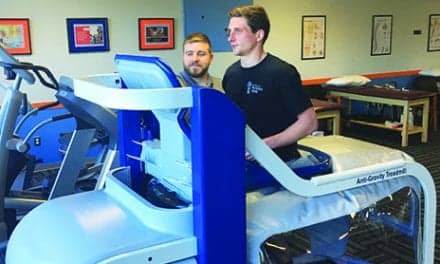Study results from the Center for BrainHealth at The University of Texas at Dallas report that, given targeted brain training, cognitive performance can be improved to significant degrees in the months and years after traumatic brain injury (TBI) in adolescents. Individuals enrolled in the study reportedly included 20 adolescents, aged 12 to 20 years old who had sustained a TBI at least 6 months prior to participating in the research and were demonstrating gist reasoning deficits. A news release from the Center for BrainHealth notes that participants were then randomized into two different cognitive training groups, which included strategy-based gist reasoning versus fact-based memory training.
The release states that the participants completed a total of eight, 45-minute sessions during a 1-month period. The researchers then compared the impact of the two forms of training on the ability to abstract meaning and recall facts. Testing encompassed pre- and post-training assessments, in which adolescents were asked to read a range of texts and create a high-level summary, using inferences to transform ideas into novel, generalized statements, and recall important facts.
The results indicate that post-training, only the gist-reasoning group exhibited significant improvement in the ability to abstract meanings. Researchers add that the gist-reasoning-trained group exhibited significant generalized gains to untrained areas including executive functions of working memory and inhibition. The results also suggest that the gist-reasoning training group also demonstrated increasing memory for facts, though this skill was not specifically targeted in training.
Lori Cook, PhD, CCC/SLP, study author, director of the Center for BrainHealth’s pediatric brain injury programs, calls the preliminary results promising, “in that higher-order cognitive training that focuses on ‘big picture’ thinking improves cognitive performance in ways that matter to everyday success. What we found was that training higher-order cognitive skills can have a positive impact on untrained key executive functions as well as lower-level, but also important, processes such as straightforward memory, which is used to remember details.”
Cook acknowledges that while the study sample was small and a larger trial is needed, the real-life application of the training program is key for adolescents who “are at a very challenging life-stage when they face major academic and social complexities. These cognitive challenges require reasoning, filtering, focusing, planning, self-regulation, activity management, and combating ‘information overload,’ which is one of the chief complaints that teens with concussions express.” Cook says.
According to the release, the research advances best practices by suggesting modifications to treatment schedules for TBI and concussion. Achieving cognitive gains through a brain training treatment regimen during the chronic stages of brain injury, 6 months or longer, reinforces the need for annual monitoring of brain recovery and providing treatment when deficits persist or emerge later, the release says.
Sandra Bond Chapman, PhD, study author, founder and chief director of the Center for BrainHealth and Dee Wyly Distinguished University Chair at The University of Texas at Dallas, emphasizes the need for routine follow-up monitoring for brain injuries.
“We need to make sure that optimized brain recovery continues to support later cognitive milestones, and that is especially true in the case of adolescents. What’s promising is that no matter the severity of the injury or the amount of time since injury, brain performance improved when teens were taught how to strategically process incoming information in a meaningful way, instead of just focusing on rote memorization,” Bond says.
[Source: Center for BrainHealth]





